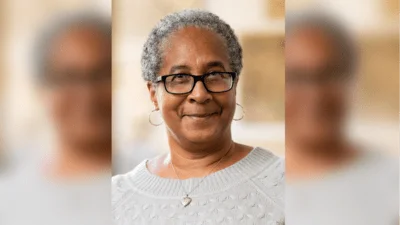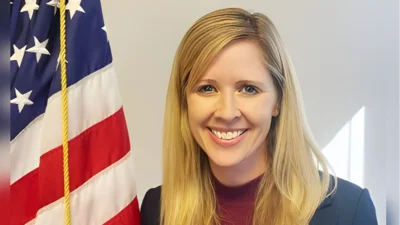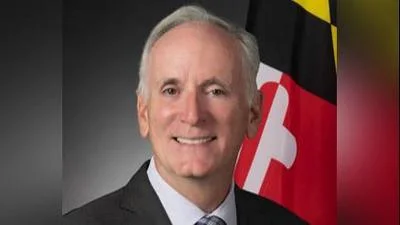Caroline County Construction Trade Board met Sept. 12.
Here is the minutes provided by the board:
BOARD MEMBERS:
Earl R. Kitchen, Jr., Chairman Mike Mann, Vice-Chair Scott Holden Glenn Orme Curtis Short Eric Smith Scott Veil
OTHERS PRESENT:
Crystal Dadds, Assistant Director of Codes Melanie Smith, Administrative Assistant to Boards Rob Smith, First State Inspection Agency
CALL TO ORDER
At 2:06 p.m., Chairman Kitchen called the meeting of the Caroline County Construction Trades Board to order.
TRADES BOARD MINUTES
Everyone having read the February 7, 2018 minutes proceeded to vote.
Motion: Second; Action taken:
Mr. Eric Smith made a motion to approve the minutes as written. Mr. Short seconded the motion. All members approved the motion unanimously (6:0).
TRADES BOARD SCHEDULE FOR 2019
The members looked over the proposed Trades Board schedule for 2019. They saw no conflict and accepted a copy for their records.
MEMBER REAPPOINTMENTS
Ms. Smith informed the Board that two appointments were to expire at the end of this year. She invited Mr. E.R. Kitchen and Mr. Michael Mano to sit on the Board for another term. They both accepted the invitation and Ms. Smith will recommend their reappointment to the County Commissioner's Office.
MANUAL"J"
Chairman Kitchen explained that Mr. Haymen, who was unable to attend today, was interested in making the Manual ")" mandatory for existing structures as well as new construction. The Manual ")" is a LOD calculation for HVAC. Until there is a permit process for HVAC work in
Caroline County, requiring a Manual "J" for an existing home is powerless.
This leads up to the Boards ongoing concern that Caroline County does not have a permitting process for HVAC work. Mr. Mann suggested the Board consider approaching the Commissioners again in March, when elections are done, to require permits for HVAC work in Caroline County.
Ms. Dadds asked Mr. Mann to explain for the other Board members what concerns were brought up when they last approached the Commissioners about requiring an HVAC permit. Mr. Mann believed that part of it was that the Commissioners did not want to require another fee for the citizens to pay,
Chairman Kitchen, as well, dislikes the licensing requirements and permit charges, but he also recognized that it protected the consumer. The members, professionals of the various construction trades, have witnessed the abuse that consumers have suffered from unlicensed or unscrupulous vendors. It has become increasingly worse as more people are aware there are no penalties in Caroline County.
They have seen homeowners charged $5,000 or more for a system to be installed that never worked. Because there was no permit or license requirement their only recourse is to seek legal action. Any money they could have expected to recoup is used on legal fees.
All the surrounding counties and even the townships require licensing and permits for HVAC work. Each permit requires that a Manual "J" be submitted. While this wouldn't stop abuse it would certainly minimize it. Requiring permits and inspections will ensure the technician is licensed and his work is signed off by a qualified inspector. This is the responsible thing to do to protect the citizens of Caroline County.
Mr. Orme, one of two members that do not participate in the trades, asked how much such a permit or inspection may cost a consumer. Chairman Kitchen stated that Mr. Rob Smith from First State Inspections could probably give a more accurate estimate; but he believed it would be less than $100. Mr. Orme agreed that $100 was a reasonable price to pay to protect consumers from being scammed.
When Mr. Smith arrived, he agreed that the minimum charge for a single-family home would be $85 for an HVAC inspection. Mr. Veil suggested the technician could be "registered" with Caroline County before being allowed to do business in the County. This would resolve the issue of not having the license/contact information on file.
CODE INTERPRETATION – FOOTERS FOR ACCESSORY BUILDINGS
Mr. Rob Smith explained that in Caroline County the adopted code is the 2015 International Residential Code (IRC). SR105.2 Work exempt from permit, states that a permit shall not be required for a one-story detached accessory structure, provided that the floor area does not exceed 200 sq. ft. He referred to SR403.2 Footings for wood foundations and asked for guidance from the Board as to what type of footer they require for accessory buildings over 200 sq. ft. He has struggled with how to advise people on what kind of footer is reasonable. Inspectors look for the shed to be stable and typically expect four corners to be anchored down. The guidance they get from the 2015 IRC show two different figures for stone footing. The figure shows a 16" wide and 6" deep section of stone beginning from the frostline. Mr. Smith's question to the Board is should the stone go down to the Caroline County frostline, which is 24" deep. The clients complain that is too much digging and stone for a shed.
Mr. Veil stated that the previous Codes Enforcement Officer was satisfied with a 6" deep stone footing. Mr. Smith suggested that a diagram be available, to hand out, showing the measurements and expectations for shed footers. Ms. Dadds asked how the 2015 IRC Code was gray regarding this.
Mr. Smith explained that the diagram shows the frost line as just below the stone base. Such a requirement is particularly necessary for living spaces rather than storage. But one would also want to protect their investment from frost heave.
Chairman Kitchen asked Mr. Smith what other jurisdictions require. He replied that most of them require a 12' x 12' thick base of crush run stone under each skid and anchors on the corners. The problem he runs into has to do with the prebuilt sheds rather than stick built.
Mr. Mann agreed that it is too much to require a 24" trench for a temporary structure. He suggested a 12'x12' stone trench is sufficient. Mr. Smith suggested that they could qualify any prebuilt building that can be delivered and tacked onto the site as temporary with a requirement to have a 12' x 12' stone base,
Mr. Veil concluded that anything under 200 sq. ft. would not require a permit, a base or a footer, Anything over 200 sq. ft. will require a 6" stone base of CR-6 or Blue Stone % inch tamped, graded and level with anchors on each corner. All structures should be set on a level graded site.
With that being resolved, Mr. Smith asked for the Boards interpretation for the lateral support requirements for decks in the 2015 IRC. The Board agreed that free standing decks were preferred and would eliminate the lateral support requirement.
The Board discussed the handrail and guardrail requirements in the code. A deck that is 30" above grade is required to have a 34"-36" high guard rail. If there are four or more risers a guardrail and handrail is required. The handrail must be graspable. A 4" board would not comply.
POTENTIAL ELECTIRICIANS LEGISLATION FOR 2019
Ms. Dadds informed the Board that members of the low voltage community have reached out to MACO (Maryland Association of Counties) as they plan to introduce a bill that will attempt to resolve some of the concerns surrounding the statewide electricians bills that have been introduced in past sessions (HB 1407-2018; HB 1368 - 2017; SB616 - 2015). They do not intend to pursue the same sort of broad and significant changes, such as preempting locals, that were in the prior introductions. Rather they would like to focus on creating statewide licenses for journey persons and low-voltage electricians and maintain a process by which counties retain their authority to require and oversee their local licenses.
The group has sought county input on potential legislation that would:
(1) Allow local licenses to continue where they currently exist. Jurisdictions that have specific focal licenses would be grandfathered.
(2) Require counties to accept state licenses as proof of experience and education to obtain local licenses. The intent is to create a passport of sorts. A local license would still have to be obtained where required with all current oversight and fees. However, if an electrician obtains a state master electrician license or one of the newly created state licenses (journey person and low-voltage) they could use the required state experience and education as proof of education and experience to obtain the necessary local license.
(3) Create new state licenses for Journey person and low voltage electricians.
Ms. Dadds stated that she will bring any potential legislation to them once it is prepared.
ADJOURNMENT
Motion: Second: Action taken:
Mr. Mann made a motion to adjourn the meeting at 3:20 p.m. Mr. Eric Smith seconded the motion. All members approved the motion unanimously (7:0).
https://carolinemd.org/AgendaCenter/ViewFile/Minutes/_09122018-638






 Alerts Sign-up
Alerts Sign-up